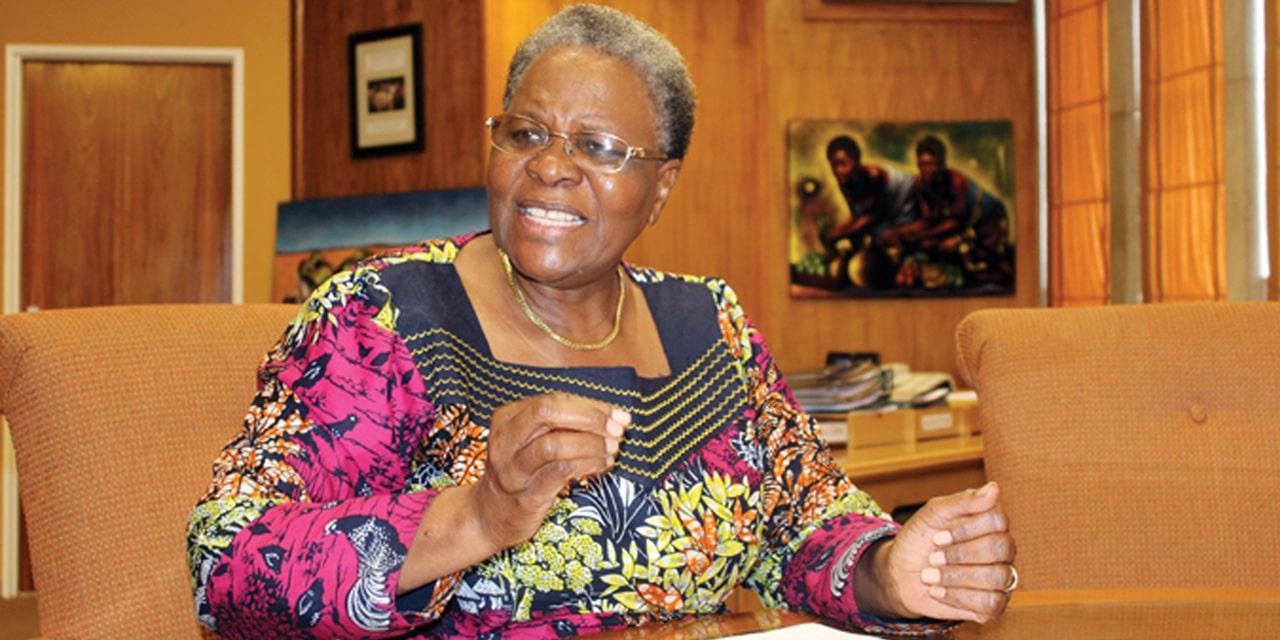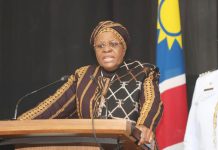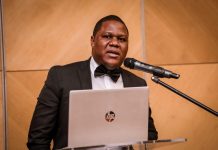Africa-Press – Namibia. Namibia’s fifth and first ever female President Netumbo Nandi-Ndaitwah is renowned as one of Africa’s greatest political figures and a fearless freedom fighter, who bestrode continents in pursuit of justice and self-determination.
As the country and continent celebrates her 73rd birthday today, Nandi-Ndaitwah’s life, political journey and valour is widely hailed as an inspiration – not only to women globally but also serves as a reminder of the importance of people-centred leadership.
Born on 29 October 1952 at Onamutai in the vicinity of Ohangwena region, Nandi-Ndaitwah has been part and parcel of the Swapo Party fabric for over five decades.
He first joined Swapo’s ranks at the age of 14, where she later became the leader of the party’s youth movement.
Her fierce voice and determination to bring about peace, freedom and political stability in Namibia made her a target of the South African apartheid regime, which later forced her to go into hiding.
With Namibia’s push for independence intensifying both on the military and diplomatic front, Nandi-Ndaitwah escaped into exile in 1973.
She joined other Swapo members in Zambia, where she worked at the party’s headquarters in Lusaka from 1973 to 1975.
While serving Swapo, she attended a course at the Lenin Higher Komsomol School in the Soviet Union from 1975 until 1976, which saw her graduate with a diploma in the work and practice of the communist youth movement.
She later became Swapo’s deputy representative in Zambia from 1976 until 1978 and the chief representative in Zambia from 1978 to 1980.
From 1980 until 1986, she was elected as the party’s chief representative in East Africa, based at Dar es Salaam.
She was also a member of the Swapo Party central committee during that period.
Empowerment
Nandi-Ndaitwah later obtained a post-graduate diploma in public administration and management from the Glasgow College of Technology in the United Kingdom.
In 1988 she obtained a post-graduate diploma in international relations from Keele University in the United Kingdom.
In 1989, she graduated with a master’s degree in diplomatic studies, also from Keele University.
Her education and political efforts were all geared towards the attainment of Namibia’s independence and building a prosperous nation once independence was attained.
Namibia finally gained its long-awaited political freedom and independence on 21 March 1990.
As a tried and tested party cadre, Nandi-Ndaitwah was deployed to serve as one of the members of the country’s first National Assembly in 1990.
She was only 38 at the time.
She went on to serve as deputy minister of international relations and cooperation from 1990 to 1996.
She first gained ministerial status in 1996 as director general of women’s affairs in the Office of the President, where she served until 2000 under Namibia’s Founding President Sam Nujoma.
In this role, Nandi-Ndaitwah worked in the department to coordinate the work of government, private and public spheres on advancing government programmes to support women and children.
During this time, Namibia’s National Gender Policy of 1997 was enacted.
Other gender responsive laws, such as the Married Persons Equality Act of 1996 and the Combating of Rape Act, which recognises marital rape, were equally all enacted to improve gender equality and reduce gender-based violence.
State formation
Nandi-Ndaitwah’s work as an advocate for peace, justice and women’s rights played a critical role in the early years of Namibia’s state formation.
In 2000, she was promoted to become the minister of women’s affairs and child welfare.
In 2003, the Domestic Violence Act was passed with her support to protect children and spouses from violence occurring in the home.
From 2005 to 2010, she served as minister of information and broadcasting and subsequently as the minister of environment and tourism until a major cabinet reshuffle in December 2012, where she was appointed minister of foreign affairs.
Under the late president Hage Geingob, Nandi-Ndaitwah was appointed as deputy prime minister in March 2015 while serving in parallel as the minister of international relations and
cooperation.
In 2017, Nandi-Ndaitwah was elected vice president of Swapo, becoming the first woman to serve in that position.
She was in 2023 named Swapo’s presidential candidate for the 2024 Namibian general election.
Through that, she was the first female presidential candidate for Swapo in 2024.
Road to presidency
Following Geingob’s death in February 2024, Nandi-Ndaitwah was appointed as vice president, succeeding Nangolo Mbumba, who became Namibia’s fourth president.
Again, Nandi-Ndaitwah became the first woman to serve in that role.
On 3 December 2024, she was officially declared the president-elect of Namibia, making her the first woman to hold the position after she received 683 560 (58.7%) votes.
She defeated closest opponents Panduleni Itula of the Independent Patriots for Change and McHenry Venaani of the Popular Democratic Movement.
Nandi-Ndaitwah was inaugurated as Namibia’s first ever female President on 21 March 2025.
During her inauguration speech, she pledged to focus on job creation as a policy priority, with a key focus on agriculture, fishing as well as creative and sports industries.
In April this year, Nandi-Ndaitwah announced that the government would provide free tertiary education to all Namibians beginning 2026.
Global recognition
Nandi-Ndaitwah was awarded the Thought Leadership accolade at the Namibia Sustainable Development Awards. She was also recognised with an Inter-Generational Leadership Award at the 2024 Nala Feminist Summit.
She also holds an Honorary Doctorate from the University of Dar es Salaam, Tanzania, and has also been honored by the president of the Namibia National Women’s Organisation for her work on improving women’s role in politics.
For More News And Analysis About Namibia Follow Africa-Press






